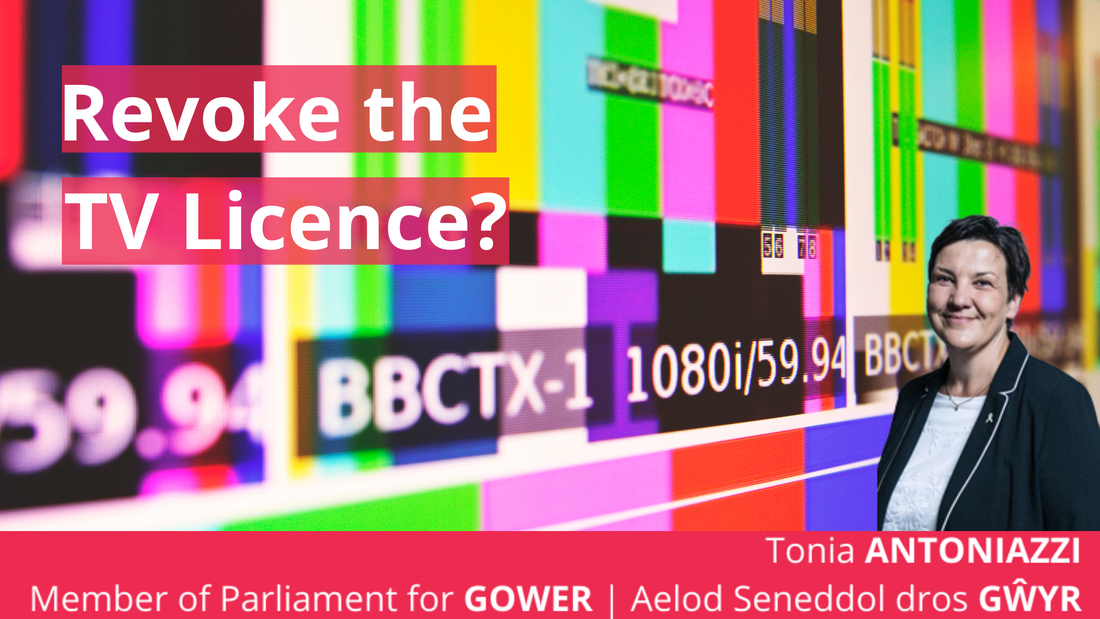|
Yesterday, the petitions committee held a debate on a petition called 'Revoke the TV Licence using legislation'. There was a broad spectrum of views aired at the debate. I took part in the debate and aired my views, which I will discuss here.
Firstly, why do I need a TV Licence? A television licence is required, even if a viewer does not watch BBC programmes. Under Part 4 of the Communications Act 2003 (as amended), a licence is needed to:
What if I don't need a TV Licence? If you don't have a TV, or don't watch TV programmes through any of the formats above, then you may not need a TV Licence. You can declare this here. The use of a television receiver without a valid licence can lead to prosecution, a court appearance and a fine of up to £1,000. In some cases, where there is a refusal to pay the fine and where all other enforcement methods have been tried, a person can be sent to jail. Why are people asking for the TV Licence to be revoked? According to the petition: "The TV Licence is not required as many people no longer watch the BBC preferring to watch other media sources and listen to many other radio stations especially the overseas service. This is seen as the British public paying for a service they don't need or use. This is also seen as a unfair tax on those on low income which usually results in many being prosecuted for non payment putting them further in debt and possible jail." Recent campaigns have cited the rise of streaming services like Netflix, Prime Video and Disney+ as a reason for revoking the current TV Licence system and replacing it with a voluntary payment, that should only cover BBC content. Others have pointed to the salaries of some BBC presenters, whilst others argue that the BBC is no longer impartial. My thoughts I cannot support this petition, now more than ever, as the coronavirus pandemic has shown us how much people from all walks of life have depended on the BBC’s invaluable service. It has shone a light on the cost of keeping up with the myriad of pay to view services, which as a single parent, I have to say is frankly excessive and puts a strain on the family budgets. Coronavirus related content, archive sport during the period when no live sport could take place, true-crime and old favourites such as Weatherman Walking and Iolo Williams provided a varied schedule which resonated with the audience. In fact almost half a million people tuned in to watch a single episode of Weatherman Walking – with Derek Brockway providing much-needed escapism during this challenging time. The value of having regional public service broadcasting is clear. Viewership of BBC Wales programming has been growing year on year, and figures for BBC Wales Today, the flagship news programme, are up 30%. Welsh-language broadcaster S4C is also funded by the licence payer. S4C is a vital component of the promotion of the Welsh language and ensures that speakers and learners of Welsh can keep practicing, even when they live in different parts of the UK. On Saturday, 1.3 million people in Wales tuned in to the BBC to watch Wales beat England in the Six Nations and claim the triple crown. With rumours rife that rights to the Six Nations will be sold and put behind a paywall, I believe that it's so important that live rugby is available to watch free at point of broadcast. I fear that losing this will risk losing a generation of future rugby players. The TV Licence is the BBC's main source of funding, and revoking it could jeopardise the broadcaster's ability to broadcast sport franchises. I do, however, believe that the scrapping of the free TV Licence for over-75's should never have happened. When it was announced back in 2019, I wrote to all those in my constituency who would be affected by the decision and invited them to air their views. My office phone didn't stop ringing. In my view, public broadcasters should not be responsible for social policy and these licences should be guaranteed as a universal benefit. However, unfortunately the Government believes free TV licences for over-75s should be funded by the BBC. In 2015, the cost of these licences was shifted to the corporation – from 2020 – without the funding to sustain the policy. The BBC was left in a difficult position, sadly. I would like to see action to protect free TV licences for over-75s. I believe the BBC is fit for purpose, and is valued by many. Comments are closed.
|
News Archive
May 2024
Categories
All
|
